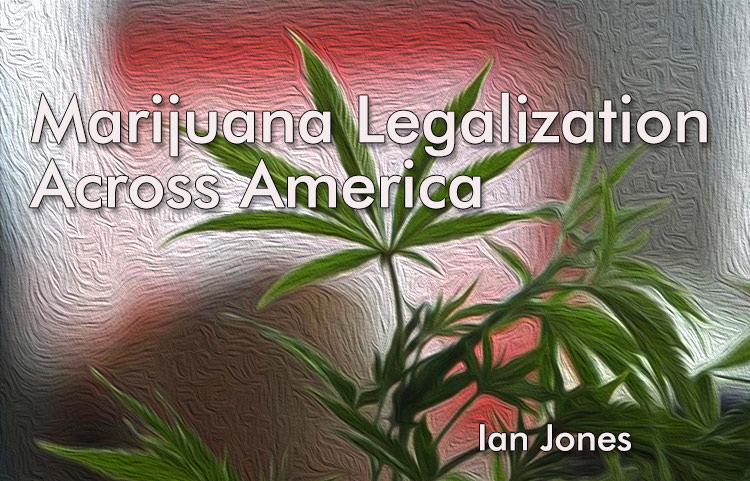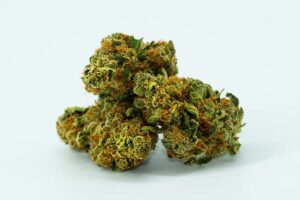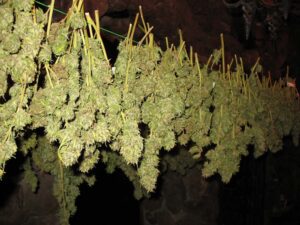Table of Contents

Marijuana Legalization Spreading Across America… And The World? Now the dust has settled (or has it?) it’s time to look back at the events of the 8th November. After one of the most divisive presidential campaigns in living memory, Donald Trump is now the president elect, to the anger of many Americans and the joy of an equal number. The election of Trump demonstrated one key thing. The America public are sick of toeing the party line and decided to wrench back control from traditional politicians.
Whether this decision was wise or not, we’ll have to wait and see. Regardless of this, when it comes to cannabis, no matter what your political persuasion, 8th November 2016 was a landmark day for American cannabis users.
Recreational Use of Marijuana
In case you don’t know, voters in the states of California, Massachusetts and Nevada all approved the decision to legalize the recreational use of marijuana for adults 21 and older. They join Alaska, Colorado, Oregon, Washington and the District of Columbia, all of which had previously voted for the legalization of recreational use of the drug.
I’m based in the UK and to the outside eye this is a monumental event, and something that would have been unthinkable just a few years ago. A drug that has been proven time and time again to be harmless when compared to mainstream products like alcohol and tobacco, has finally gained legitimacy. This is important on many levels.
When used correctly, cannabis can be a pleasant recreational experience but it isn’t just for pleasure and fun – it can be a useful tool for a vast range of medical problems, including insomnia, arthritis, pain relief and many many more.
Four States for Medical Marijuana
 With this in mind, four other states voted to legalize the use of marijuana for medical reasons: Florida, Montana, North Dakota and Arkansas. Medical marijuana is now legal in 28 states, with another 16 states allowing limited medical use of the drug. These limited use laws largely mean that only a certain form of cannabis extract can be used, namely one that is low in THC (tetrahydrocannabinol), the main psychoactive ingredient in marijuana, but high in CBD, a substance that has become wildly popular in recent years, especially with vapers.
With this in mind, four other states voted to legalize the use of marijuana for medical reasons: Florida, Montana, North Dakota and Arkansas. Medical marijuana is now legal in 28 states, with another 16 states allowing limited medical use of the drug. These limited use laws largely mean that only a certain form of cannabis extract can be used, namely one that is low in THC (tetrahydrocannabinol), the main psychoactive ingredient in marijuana, but high in CBD, a substance that has become wildly popular in recent years, especially with vapers.
It’s clear that Britain is looking across the pond, and the calls for cannabis to be legalized there too become ever-louder. Some police forces in the UK are already practicing a policy of low-level tolerance towards possession of small amounts of cannabis, acknowledging that many man-hours are being wasted on the policing of this relatively harmless drug. The current Tory government are reluctant to commit to changes when it comes to cannabis, largely due to the fear of negative press from the fervently anti-cannabis, right-wing media that tends to dictate public policy.
The Marijuana Genie
However, the genie is out of the lamp. Once the most advanced Western nation has decided that this natural herb should be sold legally, it becomes ever more difficult for similar democracies to justify their stance.
It’s unlikely that other nations will follow the lead of Portugal in decriminalizing all drugs, but the seed has been planted that drug use and abuse can be tackled in different ways. This recent decision by the American public to approve the use of cannabis in certain states, for certain reasons, is just the first step in an entirely new way of tackling drugs.
Trump Matters
But will Trump reverse these laws? Thankfully, this is unlikely. Although his statements on medical marijuana have been contradictory, in an interview with The Washington Post in October 2015, Trump said “In terms of marijuana and legalization, I think that should be a state issue, state-by-state.” And if we go back to 1990, Trump went much further, actually favoring the legalization of all drugs. “We’re losing badly the War on Drugs. You have to legalize drugs to win that war. You have to take the profit away from these drug czars,” Trump said to the Miami Herald.
Is Full Legalization of Marijuana Anytime Soon?
Full legalization anytime soon is unlikely, but considering the rapid progress when it comes to cannabis, who knows what will happen? One fascinating statistic is that prior to election night, 25 states had comprehensive medical marijuana laws. The tally now stands at 28, meaning almost a quarter of the American public live in places where adult use of marijuana is legal.
Legal Cultivation of Marijuana
 Of course, the road hasn’t been entirely smooth. Arizona rejected the proposals and there are numerous restrictions that vary from state to state. For example, in California, Massachusetts and Nevada, the new laws mean residents will legally be allowed to cultivate up to six marijuana plants – although in Nevada, this only applies to people who live over 25 miles from a store that sells marijuana.
Of course, the road hasn’t been entirely smooth. Arizona rejected the proposals and there are numerous restrictions that vary from state to state. For example, in California, Massachusetts and Nevada, the new laws mean residents will legally be allowed to cultivate up to six marijuana plants – although in Nevada, this only applies to people who live over 25 miles from a store that sells marijuana.
There are a number of other restrictions across the states. For example, in Massachusetts, employers will be permitted “to prohibit the consumption of marijuana by employees in the workplace.”
In California and Nevada, employers will have the right to enforce rules relating to how their employees use marijuana. And despite these measures being passed, using marijuana in public places is still illegal in all the states that have legalized recreational marijuana use.
These restrictions show that the legitimacy of cannabis is an ongoing process and public opinion varies wildly across the states. While many observers see the election of Trump as a victory for conservatism, the growing spread of cannabis legalization across the USA, also known as “the Green Revolution”, shows that when it comes to cannabis America is one of the most progressive countries in the Western world.





